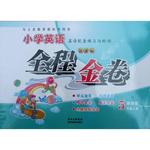题目内容
FILM DESCRIPTIONS
Back to the Future
With the help of a local inventor’s time machine, Marty travels back to the 1950s. There his 80s hipness stands out, and he inadvertently interferes with the fledgling romance of his parents-to-be. Can Marty keep them together? He’d better, or his own future will fade away. Featuring: Christopher Lloyd, Michael J.Fox. A universal Pictures release, 1 hr. 55 min.
Beethoven’s 2nd
In this sequel to the popular Beethoven, our canine hero falls for Missy, who soon has puppies. Missy’s greedy owner, Regina, who sees only money in the little purebreds, separates mom and pups from Beethoven. His owners rescue the puppies, but Regina still has Missy. Featuring: Charles Grodin, Bonnie Hunt. A Universal Pictures release, 1 hr. 26 min.
Charlie and the Chocolate Factory
Despite the popularity of his treats, candy maker Willy Wonka shuts himself inside his factory. But then Willy holds a contest, offering five lucky children the chance to see his company. Poor but pleasant Charlie Bucket finds a ticket, as do four less-deserving children. Featuring:
Johnny Depp, Freddie Highmore. A Warner Bros. Release, 1 hr. 56 min.
Cinderella Man
Based on actual events, this film follows the life of Jim Braddock, a boxer in New York City during the Great Depression. After a series of losses, Braddock is forced into retirement. But he never gives up his boxing dream, and neither does his manager. Featuring: Russell Crowe, Renee Zellweger. A Universal Pictures release, 2 hr. 14 min.
Liar Liar
Lawyer Fletcher Reede has never told the truth in his life. Then his son makes a birthday wish that his dad would stop lying for 24 hours. Suddenly, Fletcher’s mouth spouts everything he thinks. His compulsion brings disaster to courtroom, where he must defend a client whose case was built on lies. Featuring: Jim Carrey, Justin Cooper. A Universal Pictures release, 1 hr. 25 min.
Which of the following is probably the name of a dog?
A. Marty. B. Missy. C. Fletcher. D. Charlie
Willy Wonka is _______.
A. a boxer who suffers a series of losses
B. a lawyer who has never told the truth
C. a man who runs a chocolate factory
D. a man who invents a time machine
Which film is about the life of a real person?
A. Beethoven’s 2nd B. Charlie and the Chocolate Factory
C. Cinderella Man D. Liar Liar
【小题1】B
【小题2】C
【小题3】C
解析:
【小题1】本题考查根据文章有关细节进行推理判断的能力。此题不妨采用排除法;Marty出现在在第一部电影中,人物形象;Lawyer Fletcher本身说明了答案;Charlie是第三部电影中的演员。Missy出现在第二部电影中(…. our canine hero falls for Missy, who soon has puppies.) puppy的意思为 “小狗。”
【小题2】本题考查理解细节信息的能力。根据第三部电影Charlie and the Chocolate Facttory 的介绍可知正确答案为C。
【小题3】本题考查理解细节信息的能力。根据第四部电影介绍首句 “Based on actual events, this film follows the life of Jim Braddock,…”可知Cinderella Man是根据真实故事改编的。

 全程金卷系列答案
全程金卷系列答案